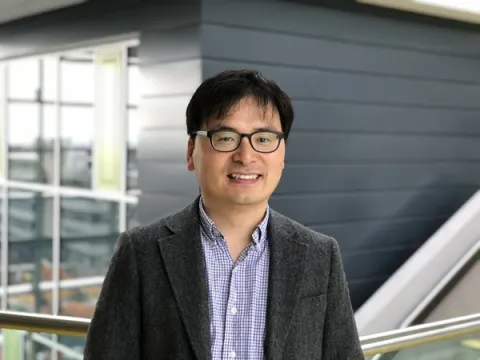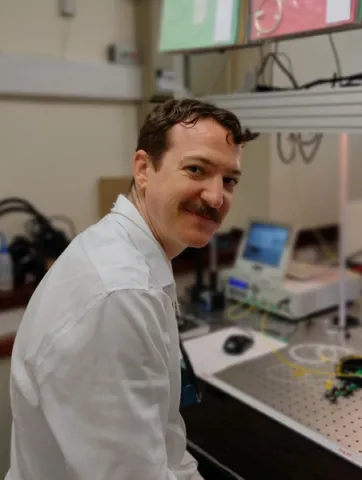About the project
Are you excited by cutting-edge optics, photonics, and the chance to help develop revolutionary new technology? This PhD project explores how to combine two transformative technologies – Hollow-Core Fibres (HCFs) and Photonic Integrated Circuits (PICs) to build a revolutionary new photonics platform and unlock new possibilities in science and engineering.
Hollow-Core Fibres (HCFs) and Photonic Integrated Circuits (PICs) are revolutionary technologies poised to change our world. HCFs guide light through air rather than glass, offering unprecedented optical performance, including ultra-low latency and loss across a wide wavelength range. PICs shrink complex optical systems down to the chip-scale, enabling more compact, efficient, and performant devices, that would potentially be impossible otherwise.
By integrating HCFs with PICs, we aim to leverage the benefits of both to create a revolutionary new photonics platform capable of enabling new applications and dramatically enhancing current ones. Potential applications include:
- long-distance quantum entanglement distribution
- scalable quantum computing
- visible-light communication
- advanced (mid-IR) gas sensing
Your project will explore the challenge of integrating these technologies and will involve both experimental and simulation work. You’ll tackle problems in optical design device and fibre fabrication, and system performance, and join the world-class team at the Optoelectronics Research Centre (ORC) and CORNERSTONE Photonics Innovation Centre (CPIC), who will train you and support your research.
The ORC has over 200 researchers, with a large and diverse PhD student community and has been at the forefront of optoelectronics for over 50 years. CPIC, who will fund the project, is the UK’s technology hub for silicon photonics with a mission to build a silicon photonics pipeline for industry by 2030.
During your PhD you will receive training and support from the world-class teams employed at the Optoelectronics Research Centre and CORNERSTONE Photonics Innovation Centre, enabling your ground-breaking research work, kick-starting your career in photonics, and affording you a clear career pathway into photonics and related fields.
The School of Optoelectronics (ORC) is committed to promoting equality, diversity inclusivity as demonstrated by our Athena SWAN award. We welcome all applicants regardless of their gender, ethnicity, disability, sexual orientation or age, and will give full consideration to applicants seeking flexible working patterns and those who have taken a career break. The University has a generous maternity policy, onsite childcare facilities, and offers a range of benefits to help ensure employees’ well-being and work-life balance. The University of Southampton is committed to sustainability and has been awarded the Platinum EcoAward.


